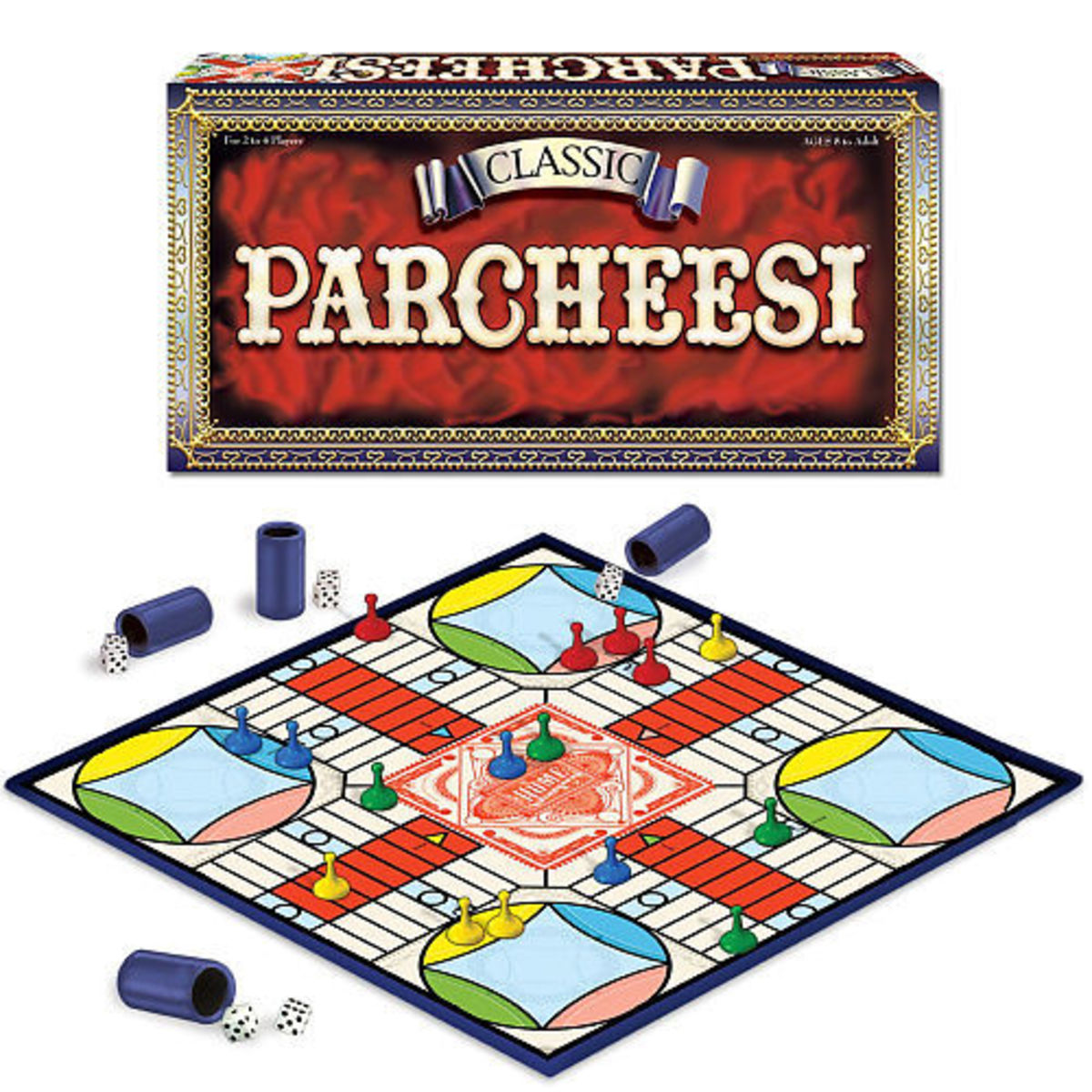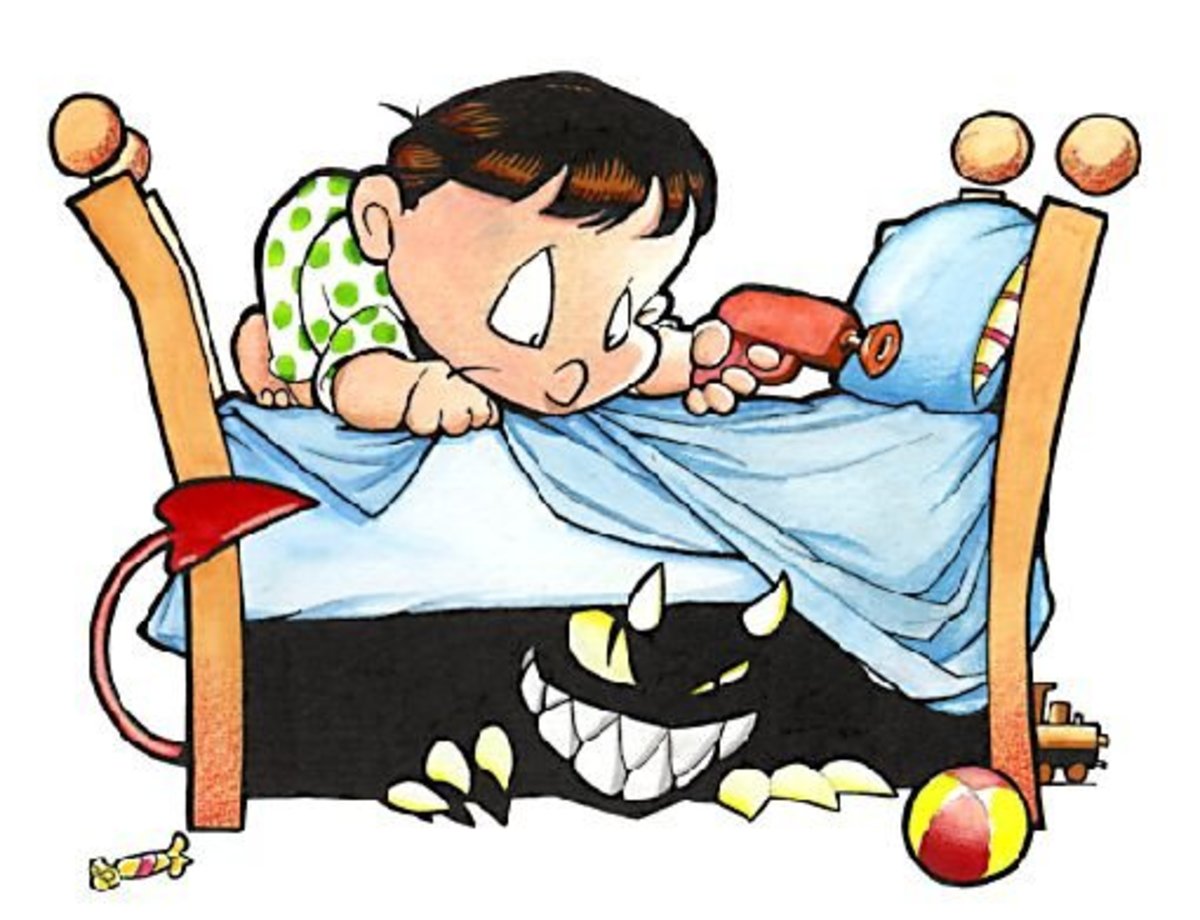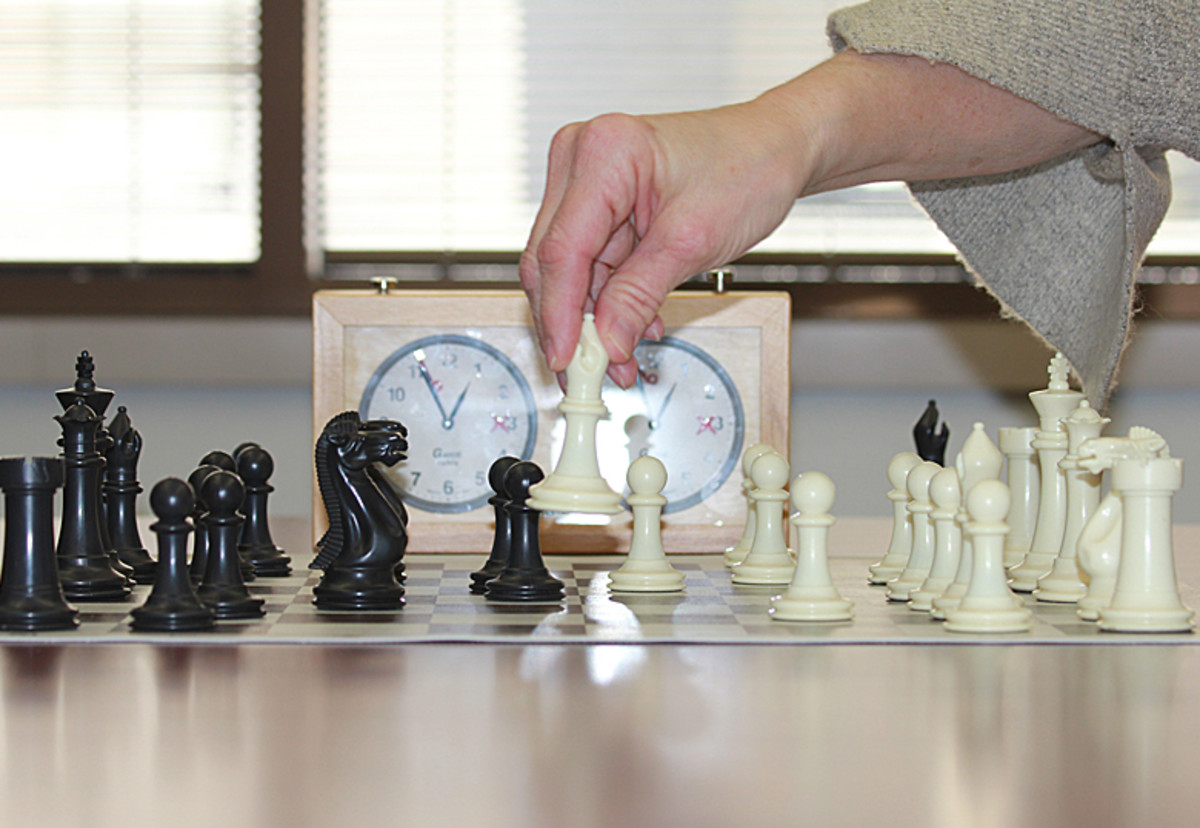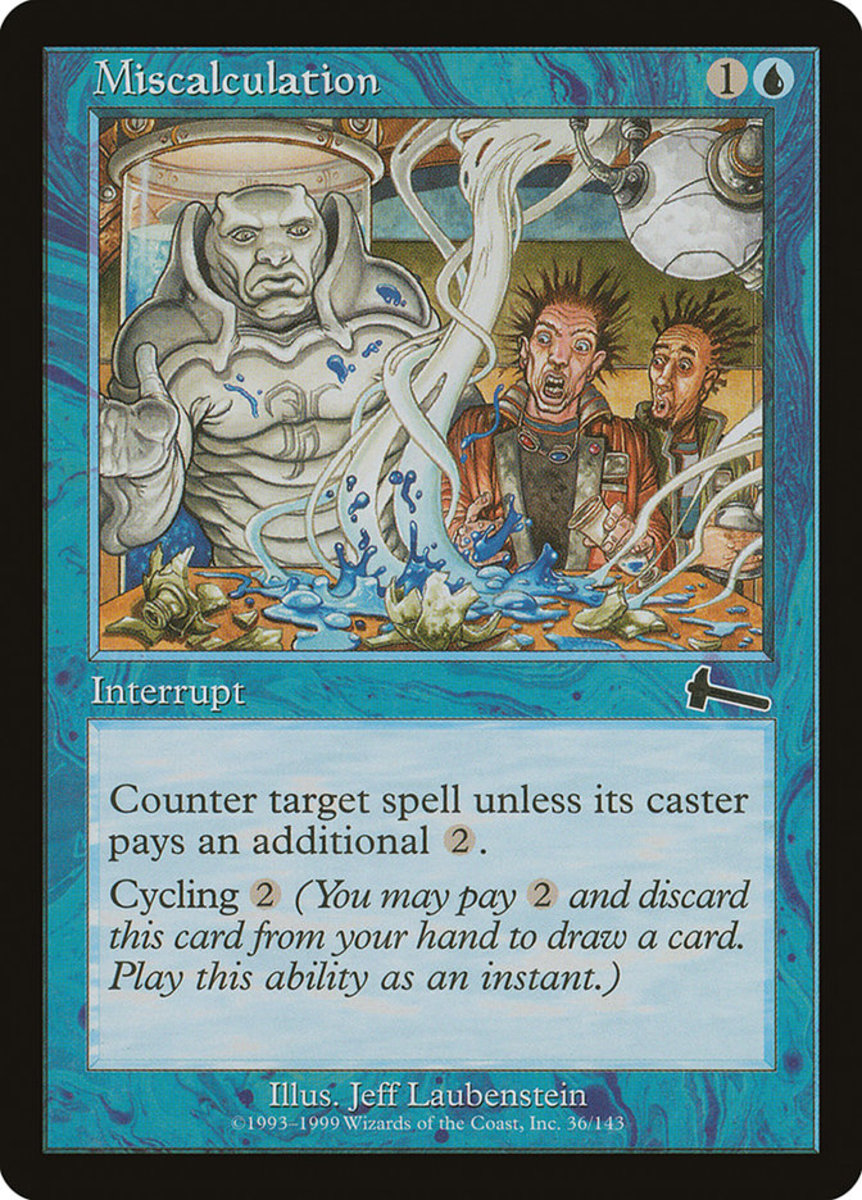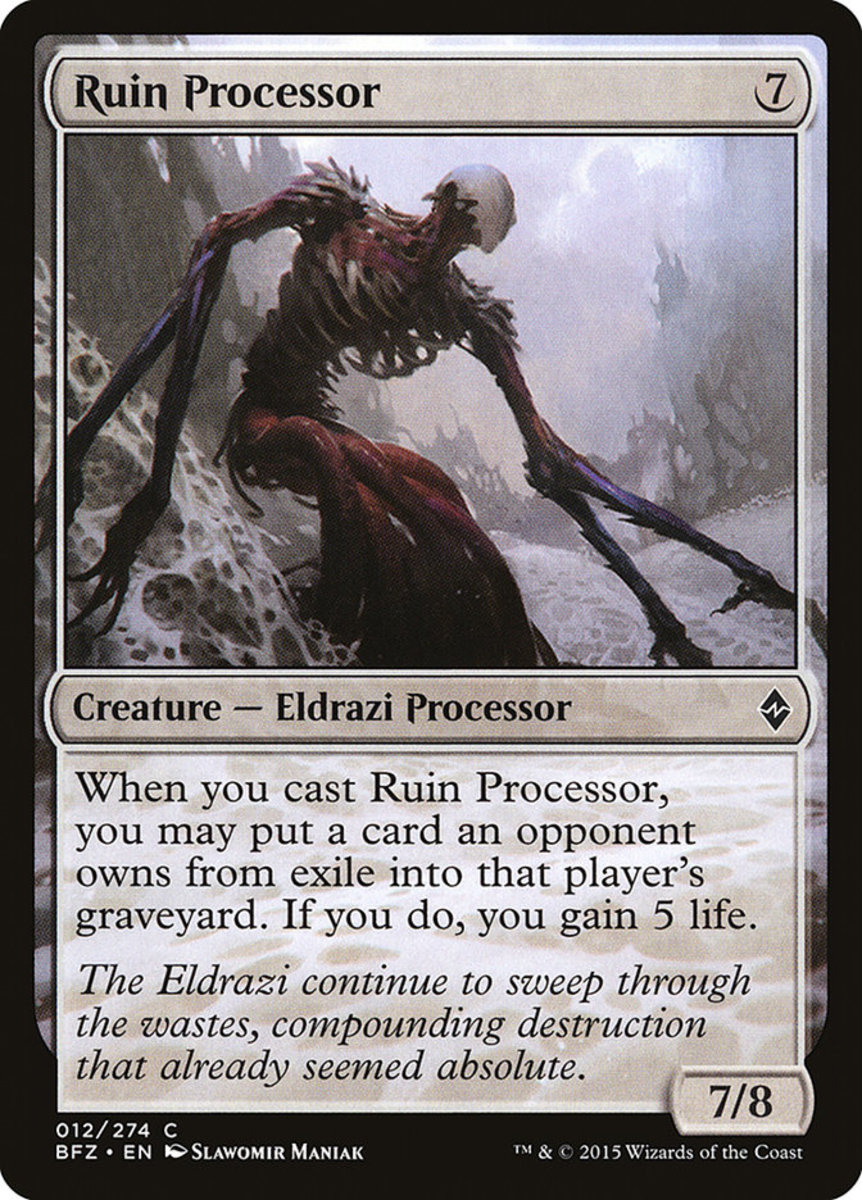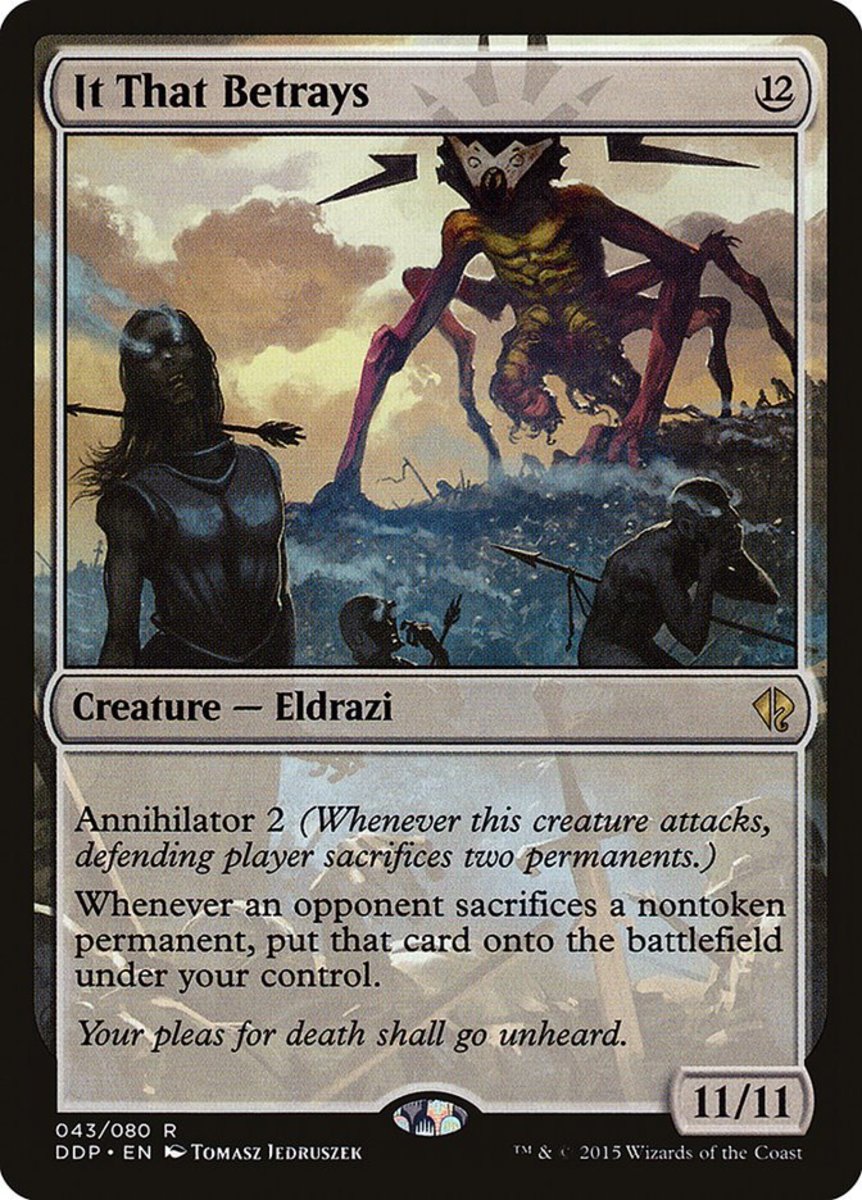- HubPages»
- Games, Toys, and Hobbies»
- Card Games»
- Collectible Card Games
Exploring Free-For-All Magic Games: Playing Politics

Recap from Last Time
Last week, I discussed the three multiplayer archetypes:
- 800-pound Gorilla: Power-house decks that intimidate other players. Obvious strength and offensive.
- Rattlesnake: Decks that make opponents hesitant to focus on because of the reprocussions
- Cute Puppy: Decks that appear harmless but usually have some absurd winning gimmick.
Playing Politically
I'm sure you have gathered that, in most cases, when you get teamed up on, you die. The challenge of Free-for-all is that it is highly political, and takes a toll on groups who take the maneuverings personally. Begging and Coaching are both considered bad form but making deals is entirely fine.
Bragging or being condescending is one of the fastest ways to turn the wrath of your opponents on you. Just consider how you would react to your statements yourself. It feels really good to bring down a braggart a few notches, and your group will feel the same. Even trying to entice your opponents to attack can have negative side effects, as they hit you from an angle you weren't expecting, or your conduct actually creates hard feelings.
And for heaven's sake, remember that it is just a game. Bluffing is okay, but lying is not. Smack talk is okay, but humiliation is not. Play hard, give your best, and consider what you have learned from each game.
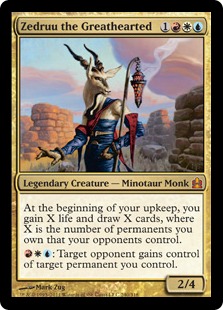
How to "Play Politics"
Most concepts from political play are just plain common sense. If you push someone, they'll push back. If you help someone out, they'll remember it when you need it (so long as it doesn't cost them too much). Condescend someone, and they will take positive satisfaction in seeing you destroyed.
Making political plays can alter the whole flow of a game of Magic. Put out a Howling Mine and everyone smiles. Put out a Bloodseeker and everyone wants you dead. Simple plays can shift the emphasis of the board where you want it to be. Perhaps you want the Gorilla player to attack some one else and you play a single Deadly Recluse to make them hesitant to attack you and lose a creature to deathtouch.
The old Commander deck, Political Puppets excelled at this kind of play. You spread your permanents across several different players so all of them were hesitant to kill you, because if they did, they lost all of the free candy you gave them. Meanwhile, you were benefiting from them having your cards.
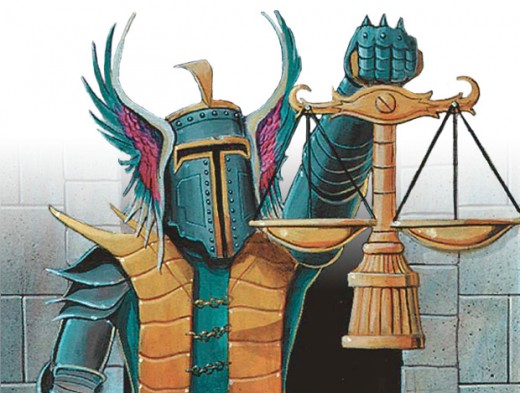
Political Structure
Talking with your opponents is one of the best ways to help them see what you see. If the Cute Puppy player has just turned the corner and is setting up for a next turn win, bringing this fact to the attention to the rest of the group is the best thing you can do. Naturally, the Puppy player will be upset that you called him out, but he should understand the threat that he posed to all the players. After the group tries to disarm the Puppy, the board dynamics will probably have changed and cause a frantic few turns.
It may take a few games to develop a strong political structure in a group. If one player has a reputation for backstabbing, the other players will always watch that one. If another player is overly aggressive, the others will wait for that player to light the fuse. This ends the phase of the game I call "The Standoff," when no player wants to act, or risk all the other players taking advantage of the gap and killing them.
As your opponents (generally) will not be AI, you can expect them to behave in a unique fashion, based on their individual views, personality and priorities. Like all guidelines, you need to use your own judgement when trying to implement them.
Dangers of Playing Politics
When delving into politics with your opponents, you run the risk of doing lasting damage to friendships. Free-For-All is a casual format and you should keep from doing things that will create offense. The first thing to consider is whether you have an appropriate group for free-for-all. If they bicker, squabble and gripe about unfairness, Free-For-All might not be for you. It will invite hard feelings and grudges, and no game is worth that.
Due to its danger, The rest of this article will be devoted to defining these pitfalls and giving advice on how to avoid them.
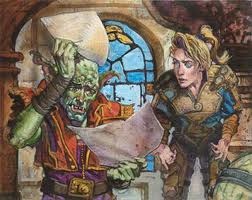
Dos and Don'ts
Bluffing
- Leave enough mana untapped to cast an important instant and hold a card meaningfully
- Take an inordinate amount of interest in an irrelevant card
- Double check an opponent's correct move and offer them a chance to take it back.
- Make an opponent second guess themselves
Lying
- Promise you will not attack someone you intend to attack
- Give misinformation about your hand, deck or intentions
- Accuse someone else of being the real threat on the board when you know you have the advantage.
- Any advice or information given maliciously to intentionally get your opponent to make the wrong move.
Bluffing versus Lying
To avoid doing lasting damage resulting from politics, there are some rules you should keep in mind. First, never outright lie. Bluffing is fine, but a lie actually damages the trust that you share with your friends. If you are not familiar with the difference, consider the following example:
Opponent: "I've got you dead next turn."
You: "Unless I'm holding a Fog."
Opponent then reconsiders the attack.
Now let's look at a lie.
Opponent: "I've got you dead next turn."
You: "I'm holding a Fog."
Opponent sighs and rearranges his battle plan, taking into consideration that you do have a Fog.
The difference might appear subtle, but it is worlds apart. One presents an agonizing situation where the opponent must choose whether he thinks you really do have a Fog or not, since you never actually said you have a Fog. The lie places your word on the line. You have supplied what looks like real information. While trusting your enemy might seem foolish, your opponent is not your enemy. At worst they are somebody you are voluntarily spending time with. And devaluing your word simply to win a game is plain silly.
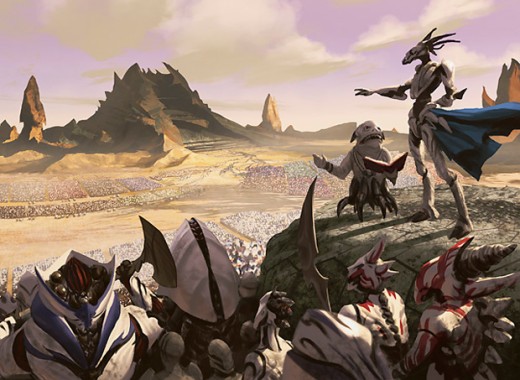
Begging and Coaching
The next rule is to avoid Begging and Coaching. Begging and Coaching fall under the same aegis, in that they intentionally attempt to alter the dynamics of the game. When your opponent has you under the sword, lose graciously and use the time out to look at your deck or watch the game as it continues without your intervention. By begging to be spared, you are attempting to draw on your opponent's charity. They may pity you and end up sparing you, but not because it was the right choice at that moment. They simply are more interested in preserving the good will between you than you are. You are effectively blackmailing your friendship.
Coaching is similar in that you are trying to manipulate your opponents. You help another player make the right blocks, attack at the right times, and target the right players. For most coaches, though, they guide this player's actions to best suit the coach, not the student. After all, there is only one winner. A little bit of instruction could help a new player in the group, but the person should be doing it on their own in short order. Discussing tactics after a game or after the situation is no longer relevant is fine. In fact it helps the group to get better and provide more interesting challenges for each other.
Smack Talk vs Bragging
Smack Talk
- Player 1: Another turn and my deck will finally get rolling.
- Player 2: Ha! It still won't help you.
- Player 1: Laugh it up. We'll see whether or not it helps.
Bragging
- Player 1: Another turn and my deck will finally get rolling.
- Player 2: My deck has been hammering you. You're still going to lose.
- Player 1: ....
See the difference? One keeps the competitive spirit, while the other is actively condescending to the other player.
Humiliation
This is one of the most senseless things I see in free for all play, yet it is also one of the most common. There are a variety of different ways of humiliating your opponent, none of which there is any excuse for. The three categories of humiliation I will go over are bragging, condescension and cat-and-mouse.
Bragging usually takes care of itself, as the braggart usually either gets put down hard, or is not invited to subsequent games. Still, many times the braggart doesn't realize they are doing what they are, as many players confuse smack talk with bragging. Basically, ask yourself if what you're saying is in a competitive spirit or if you're trying to demoralize your opponent. If it's the latter, don't say it.
Condescension is usually used as a way to preserve the pride of a player. The condescender tries to cheapen the victory of their opponent or insults their intelligence when that player does something against the condescender's scheme. Flattery can also fall into this category. As Page 5 in Privateer Press' Warmachine says "Win Graciously and Lose Valiantly." If you "weren't really trying" or you were "just trying out a deck" why did you even bother playing?
Cat and mouse occurs primarily in duels, or when there is only a single opponent left in a Free-for-All. The winning player (the cat) allows the losing player (the mouse) to live for a few turns, allowing him to start to get back on his feet before killing him. The explanation that is presented by the cat is that they are "giving the opponent a fair chance," when, in reality, they simply are showing how completely they are dominating the mouse. When you have a chance to finish the game, take it unless you have an important strategic reason (afraid the opponent is holding something that can stop you and will result in a fatal retaliation). Everybody wants to get on to the next game, not watch your deck continue to grow.
Do you consider yourself a "political" player?
Last Thought
Basically, conduct yourself with honor. Feints, clever tactics, and traps are all great tools for winning in a subtle way, and require no dishonesty. Keep you conscience clear, but - by all means - play hard!

Next Time!
We're going to do an in depth discussion of the 800-pound Gorilla Archetype!


